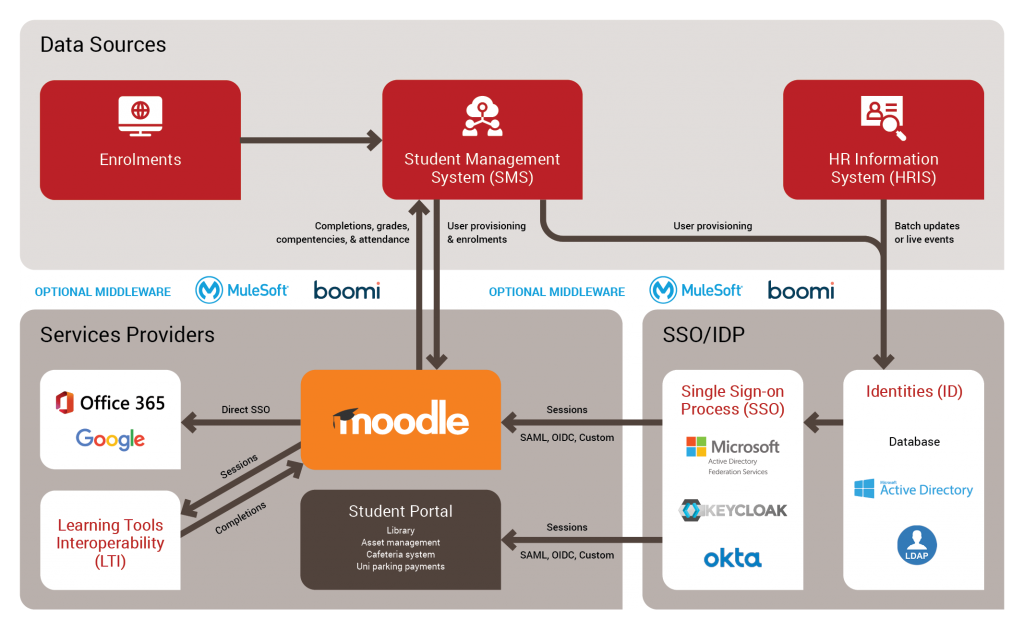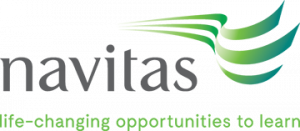Five e-learning priorities for universities
Learning and teaching since 2020
All universities want to achieve excellence, it attracts and retains students and maintains a healthy revenue stream, 2020 was no exception. However, the impact of the COVID-19 Pandemic and the resulting restrictions meant that many learning institutions operating models and established norms were compromised. Online learning delivery became an imperative.
This post looks at the top 5 e-learning priorities for our university clients and how we supported them with our edtech services.
Edtech and digital transformation
While all universities were subject to the same environmental factors created by the COVID-19 Pandemic, some were better placed to manage the large basket of components required to deliver remote learning and e-learning. The curriculum didn’t change, the course objectives didn’t change, but the delivery channel did. Educational technology (edtech) and all things digital transformation became urgent, as well as important.

E-learning priorities for large universities
From interactions with our own university LMS clients, a number of projects were initiated or given more urgency as a result of the COVID-19 Pandemic. Here’s a look at the top five priorities that came to the fore:
Top 5
1. High performance LMS
A fundamental requirement of a virtual learning environment (VLE) is that it’s available and reliable. The nature of online learning dictates that your learning management system needs to be available 24/7, on-demand, when it’s convenient for your students.
Our universities look to us to optimise their cloud services, scaling when and where they need it, while at the same time, keeping their costs at a manageable level.
Disaster recovery has also been high on the agenda, with frequent or even real-time backups being a priority. No organisation wants to be the victim of ransomware, particularly when online delivery of your services is so critical.
Explore the customer success story
We’ve written a number of posts on cloud computing, that include explaining the risks associated with cloud services and their mitigation and what cloud automation and orchestration are and how they work. We’ve also shared our journey with GoCD and how we’ve worked to optimise it, with initiatives such as the improvement of push-style webhooks for pipeline scheduling.
2. Digitalisation & improvement of course content
Online learning demands that content is available digitally, that it’s easy to produce, works within your LMS and is to a consistent standard that represents your institution.
As a Premium Moodle Certified Partner, we’ve worked with a number of our LMS Administrators to help them ensure that their Moodle course building is delivered in an effective way. We’ve also provided wide-ranging support in the pursuit of collaborative learning – sharing how to use the H5P content collaboration framework, that makes it easy to create, edit, share and reuse interactive content.
3. Assessments and high stakes exams
The show must go on. Time does not wait for cyclical assessments and high stakes exams. Delivery of e-assessments and online exams has been one of the most urgent requirements requested by our clients.
Work with Monash University
Back in 2018, we worked with Monash University to deliver the initial pilot for their e-assessment tool. The technology was further development into a stable campus-ready solution that involved extending the Moodle toolset and user interfaces to provide some key functionality:
• Closer student experience to a traditional paper-bases exam
• Improved toolkit for student time management
• Extended grading options for teachers and academics
Explore the e-assessment solution
E-assessment solution delivered in eight weeks
As the Covid-19 pandemic took hold in Canada and lockdown began in March 2020, Concordia University made the decision to move to online delivery of high stakes exams; they needed a solution to ensure the continuation of high stakes assessment delivery and to finish the academic year on time. This project went from initial discussions to being ready for exam delivery in eight weeks.
Explore the customer success story
4. Virtual classrooms
Virtual learning can be synchronous or asynchronous, it comes in many forms. It’s no secret that peer discussions have always been a significant element of learning, and now when remote learning is much more mainstream, online discussions and social learning interactions are front and centre when it comes to student engagement and learning . This relies heavily on technology platforms and social media applications, streamlining access to the them and, importantly, maintaining good information security practices.
Integration and authentication
Having an integrated system is key to enabling virtual and social learning: system integration across your environment and single sign-on (SSO) with multi-factor authentication (MFA) all serve to provide convenience and a positive user experience (UX) for your students.

Earlier this year we created an Authentication Series of blogs and videos to provide some insight into this important aspect of an optimal learning environment:
- Blog 1 SSO – What it is and how it can benefit your organisation
- Blog 2 MFA – What it is and why you need it
- Blog 3 Tips to improve password security in your business
- Blog 4 SAML – SSO with single log out
5. Student engagement
Student success is a priority for every learning institution. A student that is engaged and feels supported is more likely to actively participate in their studies, gain good grades and complete their course with successful results. Technology plays an integral part in supporting this endeavour.
From our university clients’ perspective, there is no doubt that student enrolments, student retention (particularly in that critical first year of study ) and the achievement of strong academic results are the high level goals. However, the key to achieving them lies in understanding and managing the underlying reasons:
- When did the student last login to the learning management system (LMS)
- How often have they logged in over the semester?
- When logged into the LMS, how long did they stay logged in for?
- Has there been an obvious change in learning behaviour / routine?
- What do university attendance records say?
- Has there been any recent communications with students, from other areas of the university?
Capturing and tracking these statistics, helps universities target resources where and when students need support most. We’ve worked with clients to help them leverage information from within their Moodle LMS platforms and also integrate the information with other data sources from across the environment: CRMs, Student Information Systems, HRIS etc.
One of Catalyst IT’s client’s in NZ, University of Canterbury, recently gained recognition for their work in this area at the 2021 CAUDIT AWARDS for the category of “Improving Student Success”:
The innovative Analytics for Course Engagement (ACE) is a monitoring system that uses open source learning software Moodle and AI (artificial intelligence) to help staff and students keep an eye on engagement levels with study. The early intervention means the university can proactively monitor and connect with first-year students who may be at risk of disengaging with their studies and provide the appropriate support. Students can also use ACE to view their own engagement levels compared to their peers.
Explore the IMPROVING STUDENT SUCCESS project
Drive success with edtech
There are many factors that have increased our dependency on online learning, whether through necessity, convenience or choice. What is clear, is that if we want to thrive and not just survive then we need to improve the quality and delivery of e-learning. That means getting better at creating digital assets, getting better at creating an environment that is easy to access and available. It means getting better at technology.
The Catalyst Team took away the technical challenge and worry of managing 40+ Moodle sites and delivered an educational tool for Navitas staff and educators to focus their attention on achieving learning outcomes and business goals rather than day-to-day technical administration.
Find out more
If you would like to explore how we can provide expert technical support for your LMS, we’d love to hear from you.









